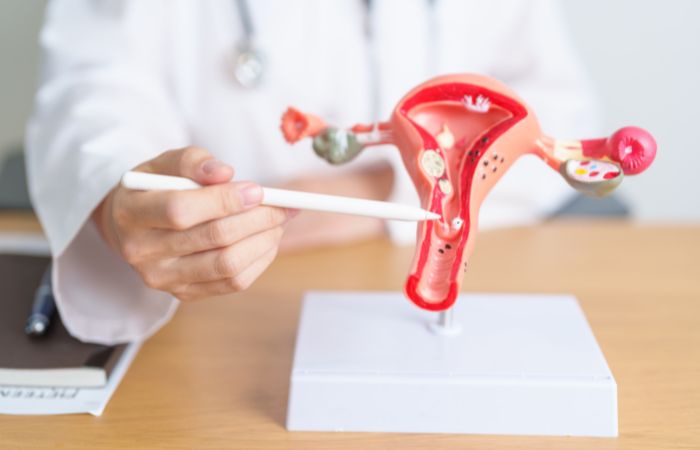
Irregular periods are one of the most common symptoms of Polycystic Ovary Syndrome (PCOS). Many women in Mumbai struggle with unpredictable cycles, hormonal imbalance, and related health concerns. The good news is that with the right lifestyle changes, it is possible to manage irregular periods effectively.
If you have been searching for PCOS treatment in Mumbai or ways to regulate your cycle naturally, this guide will help you understand practical and medically supported strategies.
PCOS is a hormonal condition that affects how the ovaries function. Women with PCOS often experience excess androgen levels, insulin resistance, and ovulation problems.
Because ovulation becomes irregular, menstrual cycles also become unpredictable. Some women may skip periods for months, while others experience heavy or prolonged bleeding.
Many patients visiting clinics for irregular periods treatment in Mumbai are diagnosed with PCOS after proper testing.
Visit Now :- https://www.diagnopein.com
Recognizing symptoms early can help you seek timely care. Women in Mumbai frequently report the following signs:
If you notice these symptoms, doctors often recommend PCOS blood tests in Mumbai to confirm the diagnosis.
Medication helps manage symptoms, but lifestyle plays a major role in controlling PCOS. Hormones are highly sensitive to diet, weight, stress, and sleep patterns.
Many specialists offering PCOS treatment in Mumbai emphasize that sustainable lifestyle changes can:
The earlier you start, the better the results.
Even modest weight loss can significantly improve menstrual cycles in women with PCOS. Excess body fat worsens insulin resistance and hormonal imbalance.
Practical tips:
Book Now :- https://www.diagnopein.com/book-test/Mumbai
Diet plays a powerful role in hormone balance. A low glycemic, nutrient rich diet helps control insulin levels.
Foods to include:
Foods to limit:
Nutrition experts in Mumbai often recommend personalized diet plans for women with PCOS.
Physical activity improves insulin sensitivity and supports hormonal balance. You do not need extreme workouts to see benefits.
Best exercises for PCOS:
Aim for at least 150 minutes of moderate exercise weekly. Many women undergoing irregular periods treatment in Mumbai see improvement within a few months of consistent activity.
Chronic stress increases cortisol levels, which can worsen hormonal imbalance. In a fast paced city like Mumbai, stress management becomes especially important.
Helpful stress reduction methods:
Even 10 to 15 minutes of daily relaxation can positively affect menstrual regularity.
Poor sleep disrupts hormone regulation and insulin function. Women with PCOS often experience sleep disturbances.
Healthy sleep habits:
Sleep specialists in Mumbai often highlight sleep as an overlooked factor in PCOS management.
Insulin resistance is a core issue in PCOS. Regular monitoring helps doctors adjust treatment plans.
Your doctor may recommend:
Timely PCOS blood tests in Mumbai help track improvement and guide therapy.
Lifestyle changes work best when combined with proper medical supervision. Regular checkups ensure that your progress is monitored.
During follow up visits for PCOS treatment in Mumbai, doctors may:
Book Now :- https://www.diagnopein.com/book-test/Mumbai
This is one of the most common questions from patients in Mumbai.
The timeline varies depending on:
Many women notice improvement in 3 to 6 months after sustained lifestyle changes. However, long term maintenance is essential.
Accurate diagnosis is the first step toward effective PCOS management. When selecting a lab in Mumbai, look for:
Quality testing ensures proper treatment planning.

